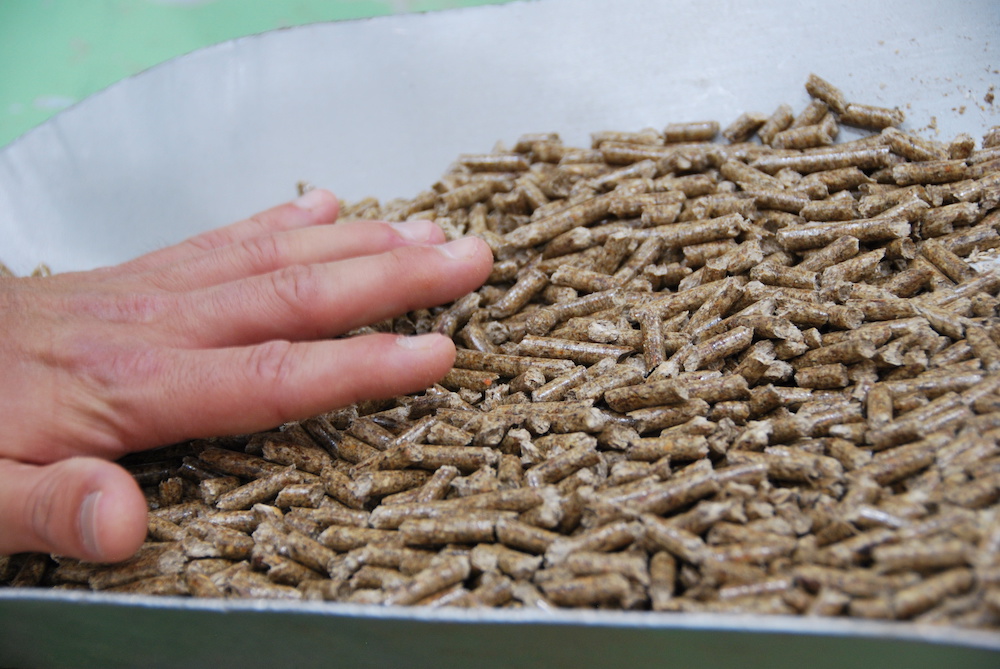
Report outlines conditions for success for bioenergy with carbon capture and storage
November 24, 2022
By Forum for the Future
 Photo: Annex Business Media
Photo: Annex Business Media An independent high level panel convened by international sustainability non-profit, Forum for the Future, has released a new report outlining 30 conditions that must be met if further investment in bioenergy with carbon capture and storage (BECCS) is to deliver positive outcomes for society, climate and the economy.
The ‘BECCS Done Well’ Report comes on the back of the COP27 Climate Conference, and joins others (such as the Intergovernmental Panel on Climate Change) in recognizing that a range of negative emissions technologies – both nature- and technology-based – will be needed if we are to limit the global temperature increase to 1.5 C by the end of the century.
As part of this technology mix, BECCS is projected to expand significantly in the next 30 years, yet continues to stir debate, with the sustainability movement divided on its viability and sustainability credentials.
In a concerted effort to move this debate forward, an independent inquiry commissioned by energy company Drax and led by Forum has brought together a high level panel to distil extensive research, literature reviews and witness testimony into actionable areas that, if delivered, would confirm BECCS as a viable option.
The report’s full findings, to which Drax has agreed to respond, are centred around four key questions:
- What conditions would need to be complied with to ensure that the sourcing and processing of woody biomass delivers positive outcomes for nature, climate and people?
- What conditions would need to be complied with to demonstrate that energy from woody biomass makes a positive contribution to decarbonisation, energy security, affordability and a just transition?
- What conditions would need to be complied with to ensure that BECCS from woody biomass makes a material, ongoing contribution towards net zero targets?
- What are the implications for Drax of these conditions, and for the wider biomass industry, in terms of policy and governance? How will verification work, in an authoritative and transparent way, demonstrating compliance with these conditions?
Among the 30 conditions in the report, the panel recommended that Drax should:
- Ensure 100% of feedstocks are certified under internationally-recognised sustainable certification schemes that deliver positive social and environmental outcomes to the highest possible standard.
- Aggressively reduce emissions both from direct operations and the wider value chain, prioritising investment in renewable power for all pellet-making plants, while scoping out the further decarbonisation measures on any new BECCS plants.
- Agree, as a condition of future Government support for Drax’s carbon removals, to publicly disclose stack emissions (including SOX, NOX, uncaptured CO2 and capture-solvent derivatives), as well as captured tonnages of CO2 on a weekly basis. Agree that all such support from taxpayers should be paid retrospectively on the basis of tonnes of CO2 successfully captured and stored.
- Consult with policymakers and NGOs on setting up a comprehensive Transparency Dashboard, establishing a set of indicators with ambitious targets to generate positive nature, climate and people outcomes. Put the resulting Dashboard into operation as soon as possible.
Brad Gentry of the Yale School of the Environment, whose expertise lies in nature-based solutions, Stuart Haszeldine of the University of Edinburgh, whose focus lies in carbon capture and storage, and Claire O’Neill, acting as an independent consultant with expertise in energy policy and governance made up the panel, chaired by environmental campaigner and Forum co-founder, Jonathon Porritt.
Their report consistently notes the need for both governments and the private sector to take a highly precautionary approach to BECCS expansion, and for the strictest governance and forest-monitoring arrangements to be in place to ensure positive outcomes.
But the panel also recognizes that with such a young industry, the prospects for positive outcomes do exist. For example, the panel believes there is an opportunity to think much more holistically about managing forests both for optimum productivity and for biodiversity, designing in critical co-benefits around water, soil, flood control, recreation, sustainable livelihoods and wider community benefits, right from the start.
It ultimately concludes that BECCS can be “done well”, subject to the conditions outlined in the report.
Speaking on behalf of the panel, Jonathon Porritt said: “We’re already in a climate emergency with a vanishingly small prospect of limiting temperature increase to no more than 1.5 C. We know that a wide range of negative emissions technologies is going to be needed at scale, and BECCS sits at the cutting edge of those technologies.
“For too long, we’ve debated BECCS as either ‘good or bad’. This inquiry dives into the nuance of that debate. It asks what conditions need to be satisfied for BECCS to deliver positive outcomes for people, planet and the economy. The panel has operated on a strictly independent basis, calling on a wide range of expert witnesses and reviewing a huge amount of literature, to present recommendations that we hope will prove valuable at a critical moment for this debate.”
Advocates of BECCS argue it has a role in sustainable forest management, providing a secure, affordable form of carbon negative energy, which extracts and permanently stores CO2 from biomass, while critics point to complex issues such as indirect land use and change, long carbon payback periods, supply chain emissions and inadequate community engagement. It is hoped that the report’s findings will help inform this debate.
Print this page